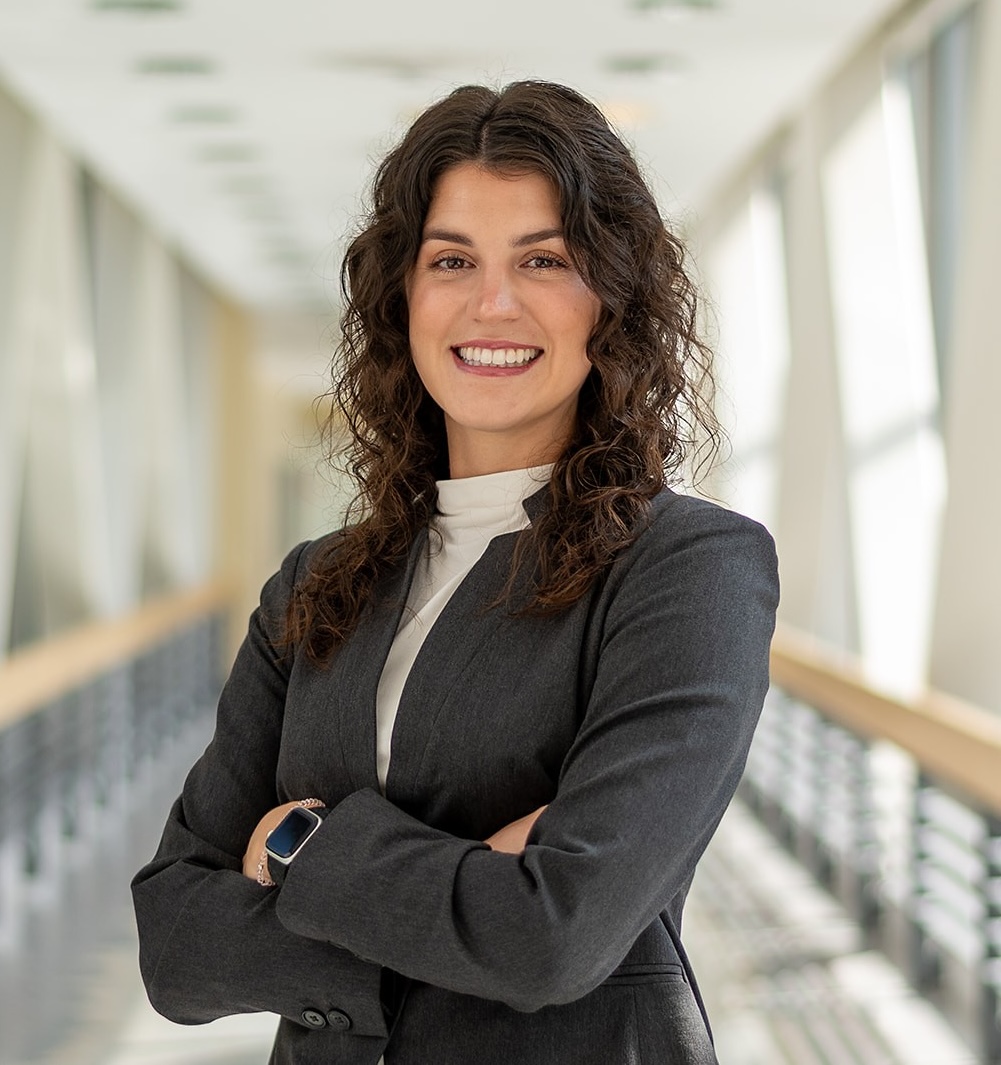CRS Scientist Spotlight on Caitlin Buchholz
Stay curious, ask for help when you need it, and surround yourself with people who believe in your potential.
Caitlin Buchholz
MS-RSM Student, Babayev Lab
Caitlin Buccholz is a 2nd year MS-RSM student. She is conducting her thesis research with Dr. Elnur Babayev, investigating the role of the JAK-STAT signaling pathway in ovarian aging.

Thesis mentor: Elnur Babayev, MD
Thesis title: "JAK-STAT as a mediator of ovarian aging"
What brought you to join the CRS community and what is your current position?
I joined CRS through the MS-RSM program at Northwestern, excited by its collaborative environment and strong mentorship opportunities. I am currently a Master’s student researcher in Dr. Elnur Babayev’s lab, studying ovarian aging.
Could you describe your research?
My research investigates the role of the JAK-STAT signaling pathway in ovarian aging. We are characterizing how the members of the pathway change across reproductive aging and evaluating how manipulation of the pathway in ovarian stromal cells influences ovarian function. The goal is to better understand how signaling dysregulation contributes to ovarian decline and identify potential therapeutic targets to extend reproductive lifespan.
What aspect of CRS do you find most valuable?
The most valuable aspect of the CRS is the community itself– being surrounded by scientists, clinicians, and trainees who are passionate about reproductive health. The mentorship opportunities, collaboration, and exposure to both basic and clinical science make CRS a uniquely supportive place for trainees at every level.
What has been the most valuable aspect to your training as a reproductive scientist?
The most valuable aspect has been learning resilience– how to problem-solve when experiments fail and adapt when results are unexpected. That process has sharpened my critical thinking and strengthened my independence as a researcher.
What is one piece of advice you would give to young scientists starting in their journey in science?
Be persistent. Experiments fail, ideas evolve, and paths shift– but each challenge is part of the process. Science is rarely linear, and each “failed” experiment teaches you something. Stay curious, ask for help when you need it, and surround yourself with people who believe in your potential.
What do you think will be the next big contribution in the reproductive biology field?
I think the next big contributions will come from integrating omics studies—single-cell, spatial, and epigenomic. Together, these tools will uncover mechanisms of ovarian aging, infertility, and reproductive disease that were previously invisible, paving the way for new diagnostics and interventions.
What hobbies do you have outside of the lab?
Outside of lab, I enjoy running and staying active, reading (both for science and fun), and cooking and baking. I also try to fit in travel whenever I can—whether it’s a quick weekend trip or a longer adventure.